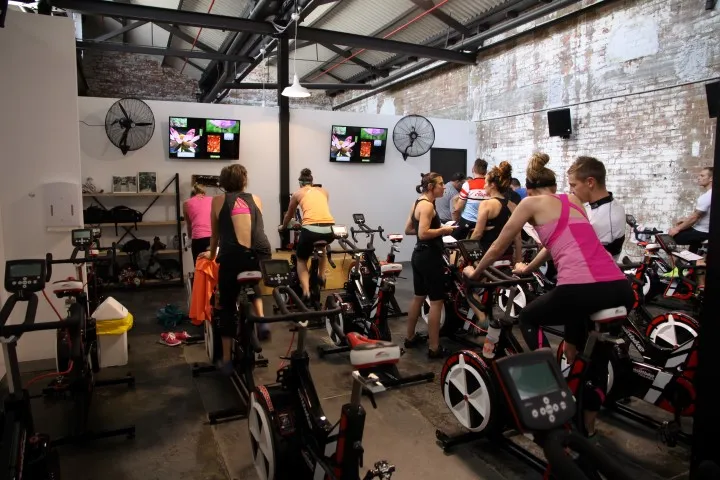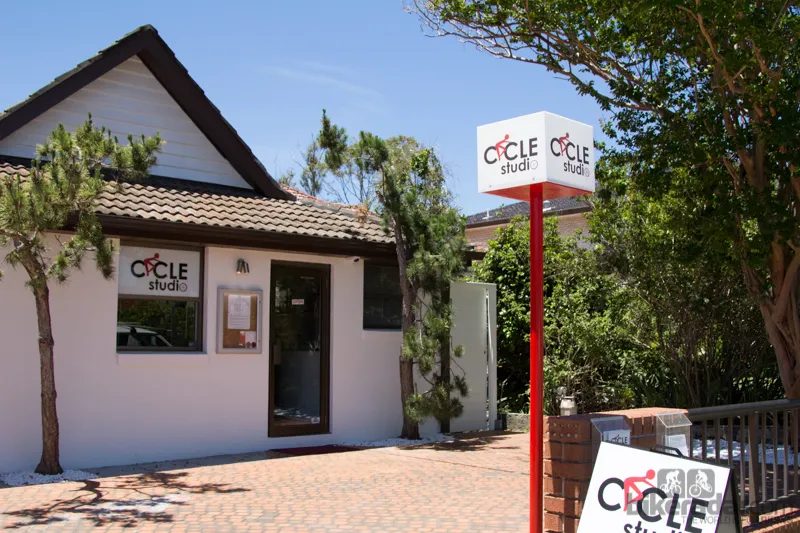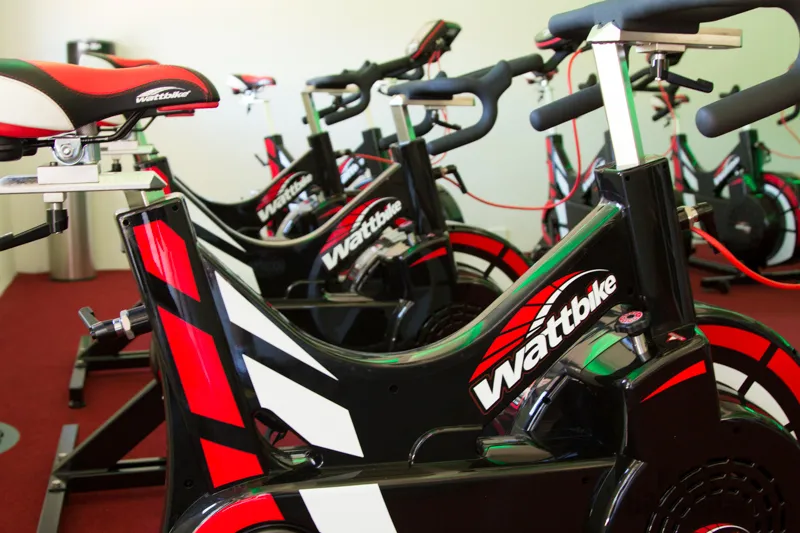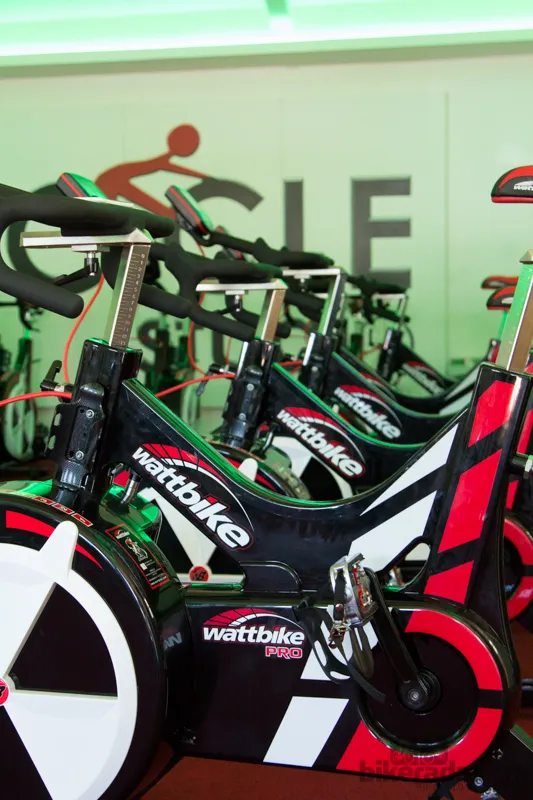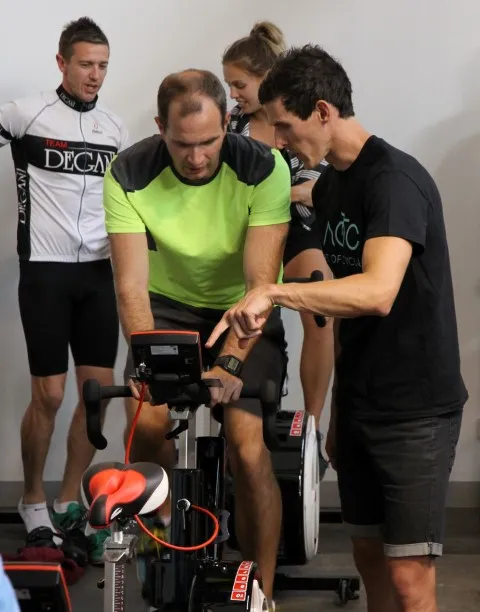Indoor cycling is no doubt popular, with gyms around the country filling class after class with spin enthusiasts eager for hard-paced, music-charged workouts. And with this, we’re beginning to see a surge in cycle-specific studios combining tailored ride plans and advanced equipment with the benefits of power-based training.
Many committed cyclists know the benefits of power-based training, but often it’s a cost too hard to justify. This is quickly changing with the likes of Garmin Vector, Powertap and Stages Cycling all bringing power meters to more affordable price-points. While power-based indoor bikes offer the most accessible entry-point to power-based training.
BikeRadar recently heard a great analogy for power-based training from Pat Warner of Stages Cycling – “you wouldn’t go to a gym and find all the weights unlabelled and just start lifting with whatever felt ‘right’. This is effectively how everyone rides a bike and it makes no sense for those who do indoor cycle workouts – these people are missing out on some crucial information.”
It’s this technology that is setting places like Sydney's Northern beaches-based Cycle Studio apart from other indoor workouts. Experienced and accomplished cyclists, such as endurance mountain biker James Lamb, instruct classes and offer one-on-one coaching to improving pedal efficiency, positioning or muscle activation – all centred around the Wattbike.
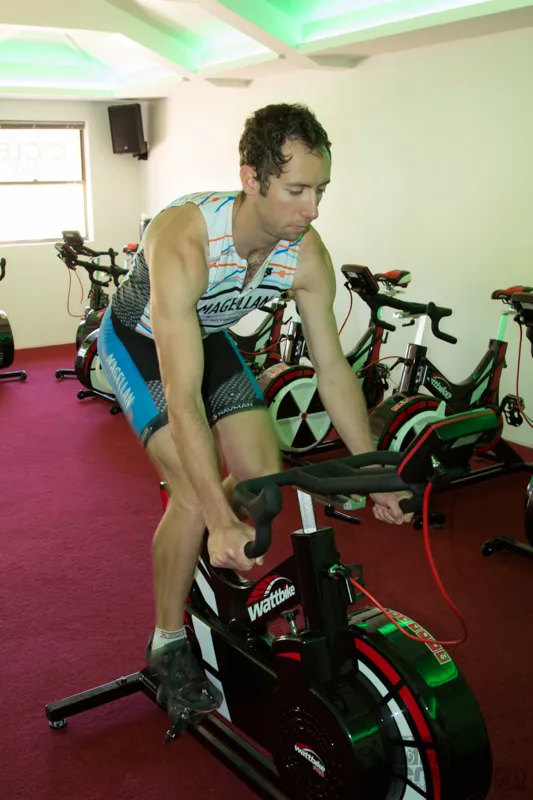
James Lamb of Cycle Studio shows off the WattBike's features
Endorsed by Australian and British cycling, the Wattbike combines power output feedback with the ability to analyse weaknesses in one’s pedal stroke. Built around the ANT+ protocol, users can bring their own heart rate monitors and give themselves a precisely tailored or race-simulated workout.
Why is power-based indoor cycling seeing such a boom? According to James Wilson of Wattbike Australia, “knowing if you’re improving and making gains from your efforts is beneficial and rewarding – whether you’re a cyclist or not."
Originally out of Singapore, Sydney-based Athlete-lab is another business offering tailored workouts with a virtual-reality cycle focus. Matt from Athlete-lab spoke about their use of Computrainers – “all workouts are tailored in-house to the individual. Despite the business name, there are sessions for all abilities, from knee-reconstruction rehab to pro-level triathletes."
Matt went onto explain why he believes power-based training is the future – “the problem with people who regularly attend normal gym-based spin classes is that they are often overtrained, those kind of classes just push you to the max for 40 minutes, and it’s not sustainable.”
Matt provided his thoughts on if the power-based training is potentially information overload for many. “We offer lactate threshold, body composition analysis and power threshold testing for those really keen on results. But for the regular fitness enthusiast, we’re setup to run two sessions at any one-time, the information is there, but for many it’s just a guideline,” he said.
Mitchell Armstrong, owner of Victoria’s new cycle studio and café, The Art of Cycling, in Yarraville explained to BikeRadar that with power it’s possible to have a class full of varying abilities all proportionately working to the same effort. Mitchell continued to explain how varying abilities can all train together – “we manage this through pre-testing each client and providing each a zone card to use as trainers run classes based on zones and so it’s all kept very simple to follow.”

The Art of Cycling combines Cafe life with cycle fitness
Mitchell went onto explain, “for the serious cyclist, these indoor workouts allow you to properly simulate a race without the hazards of other road users or obstacles – one can just train without worry.”
Potentially the biggest (and unrealised) benefit of these spin studios is it gets non-cyclists pedalling and thinking about outdoor cycling. Power-based training was something left to the professional, but now the everyday rider has the equipment access to make substantial gains to their riding.
